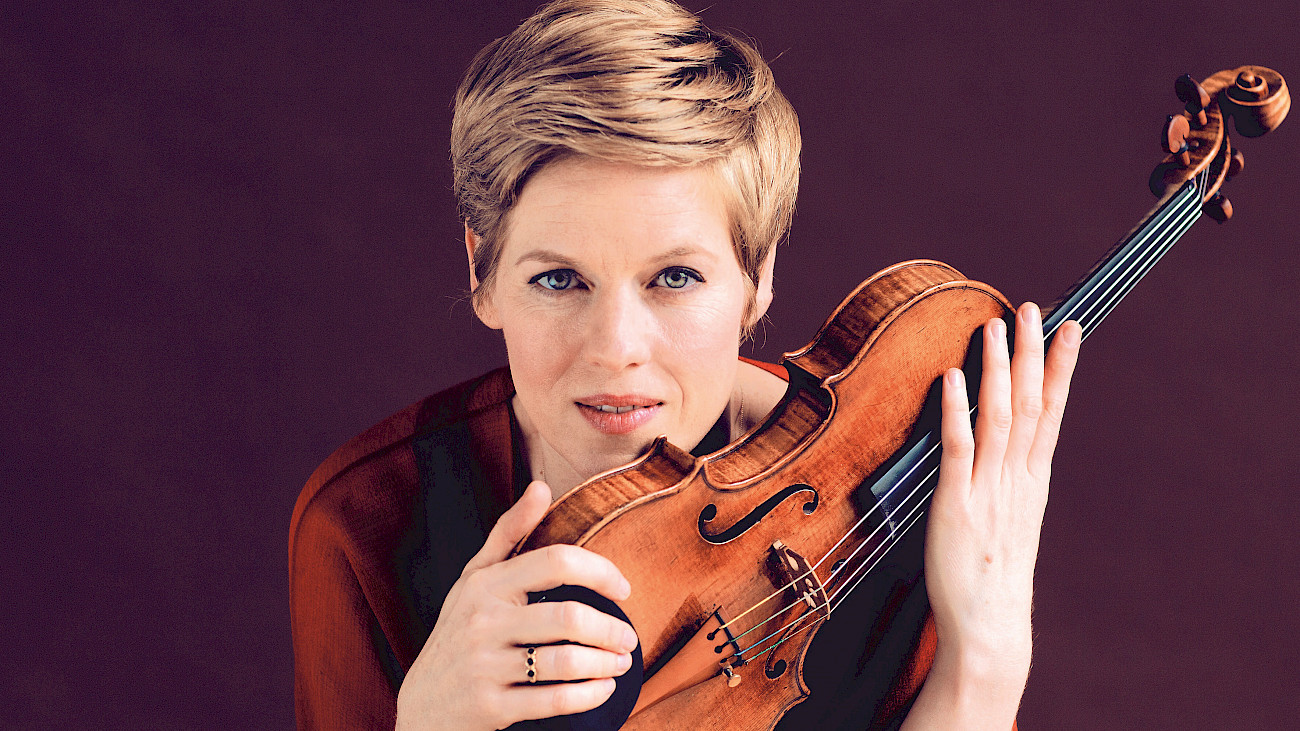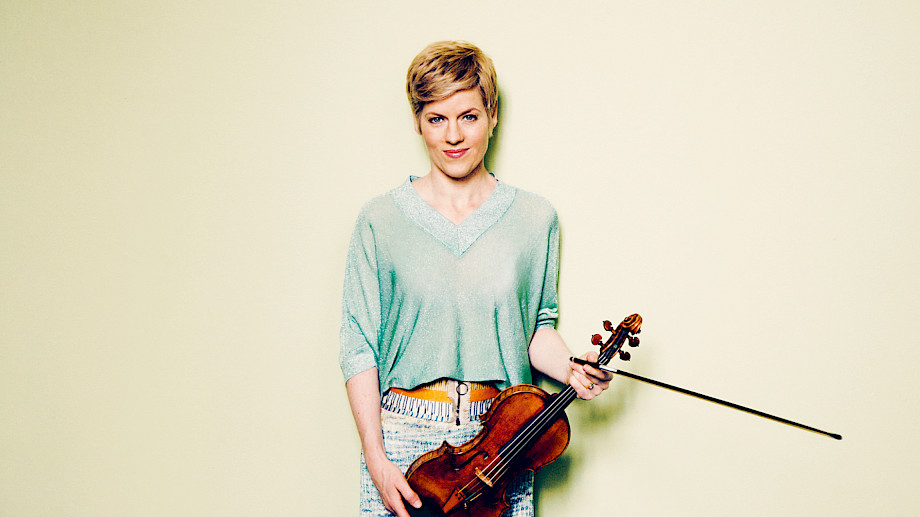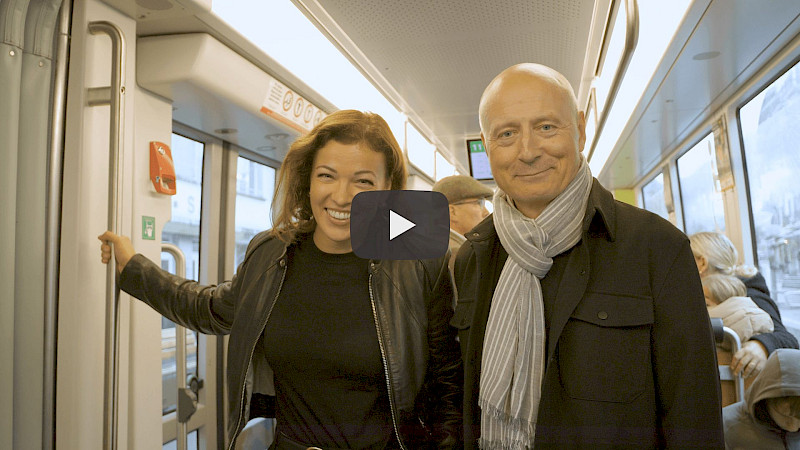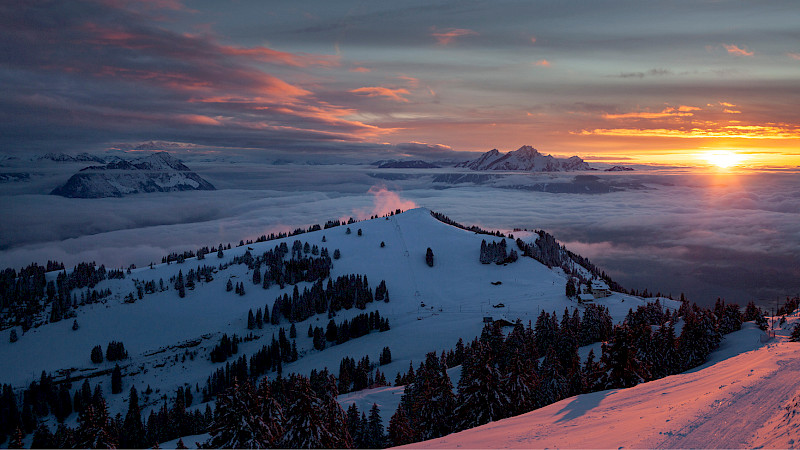
Old Works on New Instruments
How does historically informed performance practice work in the symphony orchestra? A search for clues at the Tonhalle Zurich.
It is a suspicious entry that can be found in the concert calendar of the Tonhalle-Orchester Zürich on 20 and 21 April 2023: An organ concerto in D minor by Johann Sebastian Bach is announced there. But Bach did not write organ concertos; for the work, movements from various cantatas are combined, for which Bach rewrote an original harpsichord concerto for organ.
Is that allowed? Certainly, says Dutchman Jan Willem de Vriend, who will conduct the concerts. He is one of those representatives of historically informed performance practice who very deliberately do not use the formerly common word "authentic". He is not interested in doing something exactly as it was done in the past: "If we really wanted to reconstruct performances from the past, we would not only need historical instruments, but also a different hall and different ears
He is therefore not interested in the academic correctness of an interpretation, but in the spirit of the music, its expression, its content. "Beautiful sound alone is not enough," says Jan Willem de Vriend. "To get beyond that, besides knowledge and experience, you need imagination, intuition, curiosity." So he sometimes thinks about what words he could underlay with music – quite in keeping with Nikolaus Harnoncourt's concept of sound speech. Or he finds his inspiration in a letter by Leopold Mozart: "He once raved about a chest of drawers he discovered in London, completely without corners, everything rounded." This is the image he has in mind when he performs works by Bach's son Johann Christian, who worked in London: this music should not sound angular, but round, "the flow of energy should not be disturbed by anything". Least of all by dogmas.
Historically informed Brahms
Much has happened since pioneers such as Nikolaus Harnoncourt and Gustav Leonhardt began researching historical instruments and playing techniques in the 1950s, revolutionising musical life and the concept of sound. The original sound movement, as it was called at the time, has not only become established in countless early music ensembles; it has also long since arrived in the "normal" concert world.
Starting in the Baroque era, the specialists have expanded into the early 20th century, and even the works of Brahms, Wagner and Stravinsky are now performed in historically informed interpretations. And many of the former pioneers are no longer only in front of their own ensembles, but are also engaged by symphony orchestras. A current example: the Belgian Philippe Herreweghe, who has set standards with his Collegium Vocale Gent and his Bach Passions, will soon conduct Brahms' Violin Concerto with soloist Isabelle Faust at the Tonhalle Zurich. You will undoubtedly hear what Brahms learned from Bach. And the brass players will take to the stage with period instruments, as they did in David Zinman's Beethoven cycle.
The channels between the traditional orchestra and the baroque scene, once so radically separated, are thus open again. For Jan Willem de Vriend, this is a matter of course: "With every work, a conductor must ask himself anyway under what conditions it was created and how one can do justice to it," he says. And he has no doubt that modern instruments can also provide meaningful answers.
As early as 1982, he founded a baroque ensemble with modern instruments "because we wanted to discover rare repertoire". Today, he prefers to work with symphony orchestras: "In the specialised baroque ensembles, the musicians sometimes tell you that they already know how to do it. In the modern orchestras, on the other hand – and especially in the Tonhalle-Orchester Zürich – I sense a great openness and joy in experimenting"
"Try it!"
The orchestra is indeed very open, says solo trombonist Seth Quistad, who, in addition to his work with the Tonhalle-Orchester Zürich, plays the baroque trombone in Cecilia Bartoli's house orchestra Les Musiciens du Prince, among others. He remembers a rehearsal in which Jan Willem de Vriend brought a box full of baroque bows: "He just said, try it! And it immediately sounded completely different."
Now this does not mean that the Tonhalle-Orchester Zürich is also a baroque orchestra; "it doesn't have to be", says Seth Quistad. The early music scene and the symphony orchestra are two worlds for him, differentiated by far more than the instruments and the playing styles: "The people are different, the social structure, the way we deal with theoretical sources." But when the orchestra performs works by Bach & Co., "it has to be good": so good that the Tonhalle audience gets its money's worth – and there is no need to be embarrassed in front of baroque specialists.
Violinist Elisabeth Harringer-Pignat sees it similarly. She, too, has experience in dealing with early music; at the Zurich Opera House, where she used to play, she took part in the Orchestra La Scintilla. Today she uses her baroque violin "not so often anymore, but still very much". But early music can also be played sensibly with modern instruments: "You can always find an adequate way of playing."
If you ask her about conductors, she goes into raptures: Nikolaus Harnoncourt and William Christie in the opera house, then Frans Brüggen, Ton Koopman, Giovanni Antonini, Philippe Herreweghe, John Eliot Gardiner after moving to the Tonhalle-Orchester Zürich: "It's a lot of fun to work with such luminaries." She would give anything for a Bach Passion with Herreweghe; and the projects with Jan Willem de Vriend are also among the highlights for her: "He is not a guru, but works with us at eye level. That is enormously inspiring."
From her point of view, they could all happily come to the Tonhalle Zurich more often. "The baroque and classical repertoire is enormously rich, we'd like to have more of it," she says. "In older works, we play in smaller ensembles, which is enormously important for the orchestra, for interplay, for sound hygiene." Violinist Kilian Schneider, who is also one of the orchestra's baroque fans, adds to the wish for "more often" with one for "longer": "Frans Brüggen used to be with us twice a season for a fortnight at a time. Something like that with Jan Willem de Vriend would be great; you could really deepen your understanding
Bad luck for the trombones
Ilona Schmiel, artistic director of the Tonhalle Society Zurich, knows these wishes: "It goes without saying that baroque repertoire belongs in a wide-ranging programme. The orchestra benefits from the exploration of it," she says, "which is why we have a number of plans for the coming season. It is crucial that real specialists prepare these concerts: The level of early music ensembles is high – we really have to be able to offer something special, our own approach." The orchestra members also show how much they have to offer in the series of chamber music matinees they organise themselves. It is undoubtedly no coincidence that a lot of Baroque music is played there. Purcell and Telemann, Vivaldi and Rameau: "What rarely appears in the orchestra concerts, we sneak into the programmes on a small scale," says Elisabeth Harringer-Pignat.
That the Bach programme on a large scale will be one of the highlights of the season for her "is already clear"; Kilian Schneider is also looking forward to the project with Jan Willem de Vriend. Seth Quistad, on the other hand, will not be playing, "unfortunately there are no trombones in these works. I hope for the next time: Jan Willem, please think of us!"
Translated with DeepL.com







